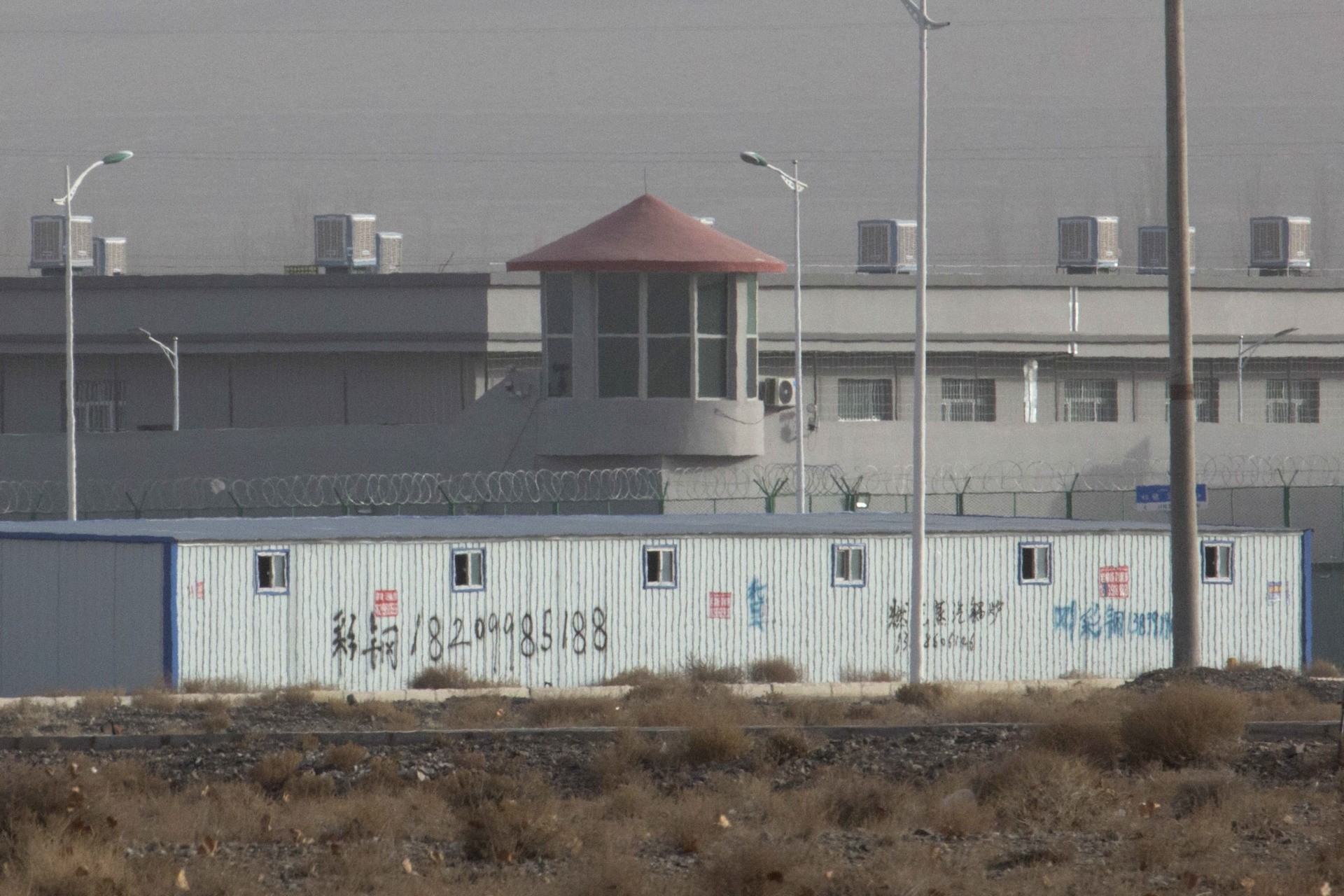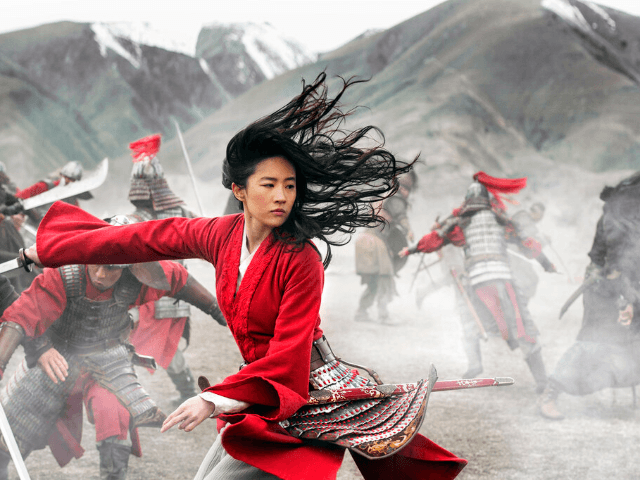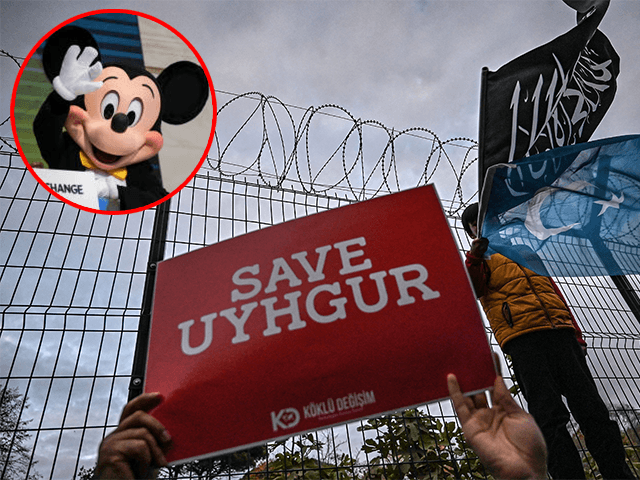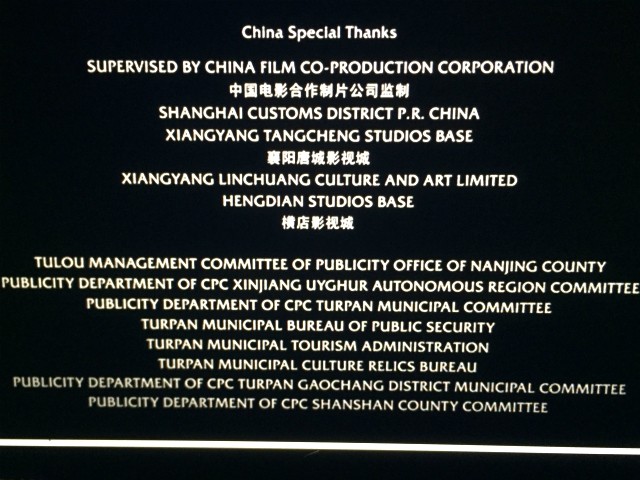Disney has taken political stances against Donald Trump, the state of Georgia, and Republican members of Congress. But when it comes to China and its human rights atrocities, the Magic Kingdom sides with the Middle Kingdom every time.
In the latest example of corporate complicity through silence, the Walt Disney Co. has refused to comment on a recent report that China is overseeing the systematic rape of ethnic minority women in the western Xinjiang region. The BBC News reported earlier this month that women in China’s concentration camps for Uyghurs have been repeatedly raped, sexually abused, and tortured.
One witness told the BBC News that women were removed from the cells “every night” and raped by one or more masked Chinese men. On Thursday, China retaliated against the BBC News by suspending the network from its airwaves, claiming that the British broadcaster has harmed China’s national interests and ethnic unity.
Breitbart News reached out to Disney to inquire about the company’s position on the report. Company spokeswoman Zenia Mucha didn’t respond to an initial email inquiry and didn’t return Breitbart’s follow-up phone inquiry.
Disney’s silence stands in stark contrast to the openly political stances company leaders have taken at home. Last month, Disney chastised Republican members of Congress who opposed certifying President-elect Joe Biden’s Electoral College win, saying it would suspend donations to those politicians.

In this Monday, Dec. 3, 2018, file photo, a guard tower and barbed wire fences are seen around a facility in the Kunshan Industrial Park in Artux in western China’s Xinjiang region. An Australian think tank says China appears to be expanding its network of secret detention centers in Xinjiang, where Muslim minorities are targeted in a forced assimilation campaign. (AP Photo/Ng Han Guan, File)
The company cited the Capitol riots of January 6. “In the immediate aftermath of that appalling siege, Members of Congress had an opportunity to unite—an opportunity that some sadly refused to embrace,” Disney said in a statement.
This week, Disney’s Lucasfilm fired The Mandalorian actress Gina Carano after she compared the treatment of conservatives under the Biden administration to Nazi Germany. Disney called her social media post “abhorrent” in a public statement. But the studio hasn’t taken similar action against co-star Pedro Pascal, who has compared the Trump administration’s policy toward illegal immigrants to the Holocaust.
At the height of the Black Lives Matter protests and riots last year, Disney posted a social media message and a YouTube video expressing its solidarity with the BLM movement. “We stand against racism. We stand for inclusion,” the company said.
Two years ago, the studio threatened to boycott Georgia over the state’s fetal heartbeat legislation, with chairman Bob Iger saying that it would not be “practical” for his company to continue to shoot in Georgia if the bill became law.
Iger has also thumbed his nose at President Donald Trump, quitting the president’s business advisory council in 2017 over the White House’s decision to withdraw from the Paris Climate accord. “I deeply disagree with the decision to withdraw from the Paris Agreement and, as a matter of principle, I’ve resigned from the president’s advisory council,” Iger said in a statement.
Disney has never spoken an ill word about China — neither about its human rights record nor its position as the world’s biggest polluter.
More than any other Hollywood studio, Disney has developed a close business relationship with China’s Communist rulers. Iger has even expressed interest in becoming ambassador to China, reportedly making overtures to people in the Biden team about the coveted diplomatic post.

Stephanie Young, managing director of Hong Kong Disneyland Resort, (C), stands on stage at Walt Disney Co.’s Disneyland Resort on June 18, 2020 in Hong Kong, China. (Billy H.C. Kwok/Getty Images)
So close is Iger’s relationship with China that he forbade journalists at Disney’s ESPN from discussing the pro-democracy movement in Hong King in 2019. When asked about China during a CNBC interview the same year, he would only say it was important for Disney to be “culturally correct” when dealing with the country.
While the Asian market still only represents about 10 percent of Disney’s global revenue, the company has sunk hundreds of millions of dollars into its Shanghai theme park, which opened in 2016. The studio also relies heavily on the Chinese moviegoing market to boost the bottom lines of its Marvel superhero movies. Marvel’s Avengers: Endgame reaped 22 percent of its worldwide gross from China, more than any other country outside the U.S.

This image released by Disney shows Yifei Liu in the title role of “Mulan.” (Jasin Boland/Disney via AP)
Last year, China surpassed the U.S. for the first time to become the largest movie market in the world, an achievement helped by the coronavirus pandemic.
At the same time, China has becoming a public relations liability for Disney. The studio came under fire last year over its live-action movie Mulan, which was partially shot in Xianjiang. The movie’s credits thanked eight government entities in Xinjiang, including the public security bureau in Turpan, a city in eastern Xinjiang where several concentration camps are located.
Despite negative media coverage, Disney has yet to comment on the Mulan controversy.
Watch below:
Senator Ted Cruz / YouTubeDuring the Trump administration, Republicans put increasing pressure on Hollywood over its business ties with China. Sen. Ted Cruz (R-TX) has proposed a zero-tolerance policy for Hollywood studios that willingly censor their movies to please Chinese Communist officials. The proposed legislation would block all federal assistance to the studios behind those film productions.
To appease China, Disney cast Scottish actress Tilda Swinton in a role that was originally meant to be a Tibetan monk in Marvel’s Doctor Strange.
Watch below:
U.S. Department of State / FacebookSecretary of State Mike Pompeo and Attorney General Bill Barr also put Hollywood on notice in separate speeches last year, taking the studios to task for self-censorship and slamming celebrities for promoting social justice at home while remaining silent about China.
In the final days of President Trump’s administration, Secretary of State Pompeo declared that China’s policies on Muslims and ethnic minorities in Xinjiang constitute “crimes against humanity” and a “genocide.”
Watch below:
U.S. Department of State / YouTubeJoe Biden has taken a more lenient approach to China and his administration is reviewing the “genocide” designation, according to recent Congressional testimony given by Linda Thomas-Greenfield, Biden’s pick for United Nations ambassador.
As Breitbart News reported, Biden and his family’s financial ties to China — which were recently exposed by emails found on a laptop belonging to his son, Hunter Biden — pose a national security risk for the U.S. due to the millions of dollars CCP-linked companies have given to business ventures tied to Hunter Biden, other family members, and Joe Biden himself.
Follow David Ng on Twitter @HeyItsDavidNg. Have a tip? Contact me at dng@breitbart.com


COMMENTS
Please let us know if you're having issues with commenting.